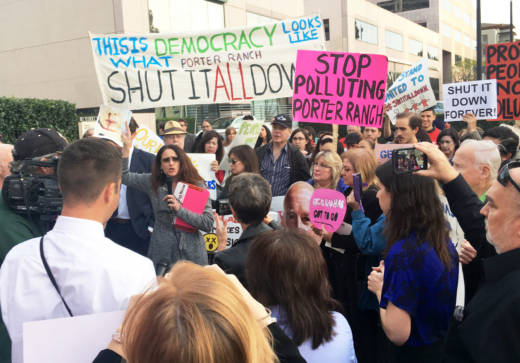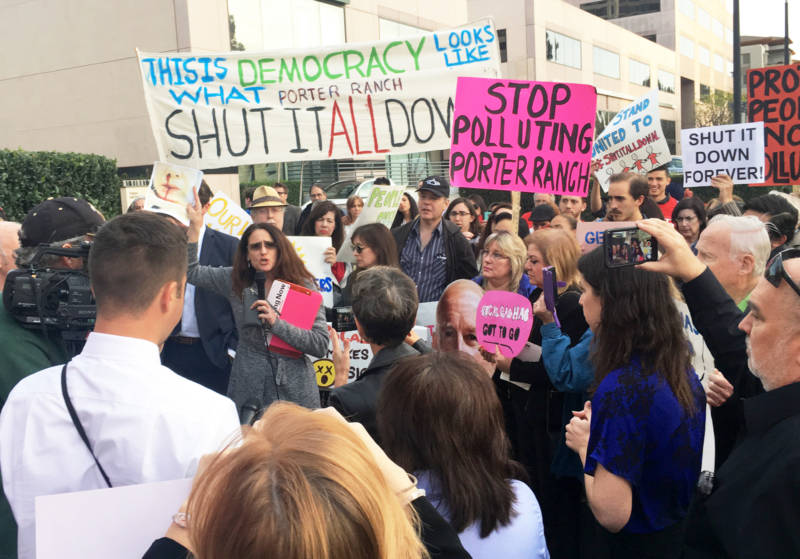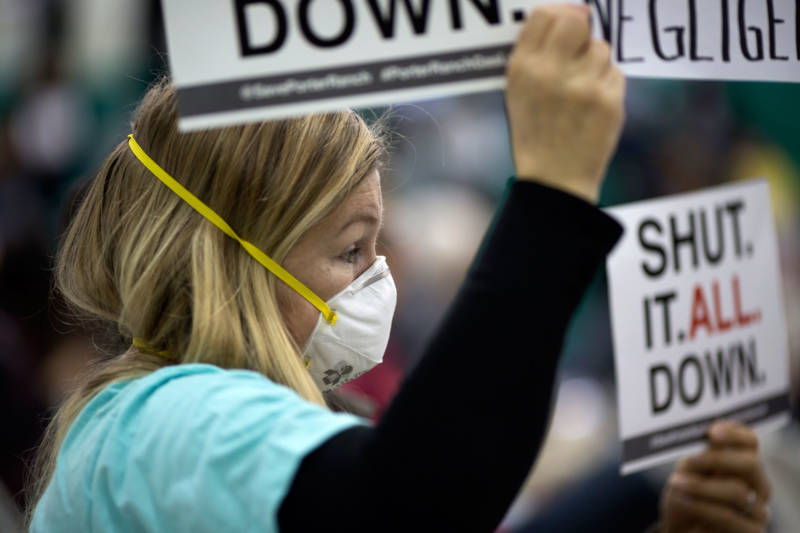A leader of Save Porter Ranch, Matt Pakucko, vented his frustration through a bullhorn once his microphone was cut off.
“If you cannot absolutely state, with the root-cause analysis completed, what caused the blowout, then you cannot claim that this facility is safe,” Pakucko shouted.
State Sen. Henry Stern has introduced a bill to require that analysis to be completed before the gas field reopens. Some Republican lawmakers and U.S. Sen. Dianne Feinstein have signed on, too.
"The hope is we don’t have to push the bill all the way through and that they’ll take a pause here and reassess, not rush this thing but we’ll go that route if we have to."
SoCalGas says Stern’s legislation and a root-cause analysis are “unnecessary” because a federal report has identified an equipment problem for the well that failed, SS-25.
That report found a leak in the outer casing of the well, and SoCalGas points out that DOGGR’s well testing covers the outer casing of every well approved to return to service.
Longer-Term Questions
Independent experts, including a Louisiana-based engineering firm consulting for Los Angeles County, are raising technical questions to which DOGGR and CPUC must respond before making the decision to reopen the Aliso Canyon field.
The company says that this storage field is critical to meeting peak demand on the coldest and hottest days, another question disputed by consultants for the county and Food and Water Watch, an advocacy group seeking to shut the gas field down permanently.
Required by law, the state will soon begin to look into whether it can provide enough power without Aliso Canyon’s gas reserves.
CPUC executive director Tim Sullivan says that question is separate from the decision to reopen, the process underway now.
“The first decision we have to make is, based on the facts and the investments and the repairs that have been done, is the facility safe enough to open? The second question is, does it make sense to have this facility here in the long run?” Sullivan says. “And decisions in the short term aren’t necessarily influencing decisions in the long term.”
Liza Tucker, with the advocacy group Consumer Watchdog, says the fact that so many questions remain unanswered is itself evidence that reopening Aliso Canyon is a bad idea.
"The idea that we have communities living practically on top of those gas wells and that we had a terrible accident that displaced thousands of people and sickened hundreds of people tells you something,” Tucker says. “It’s not worth the risk of reopening the facility.”
Helen Ritenour, a former Porter Ranch resident who testified at the recent public meeting, says regulators should take action to protect her community.
Fifteen months ago, when a well first blew at Aliso Canyon, Ritenour and her husband had just bought their first home in Porter Ranch, and had a baby. She told DOGGR chief Harris and CPUC executive director Sullivan that her health risks remain unknown.
“We don’t need you to sell us on the need or the safety of this facility. What we need is to stop being sick,” she says.


